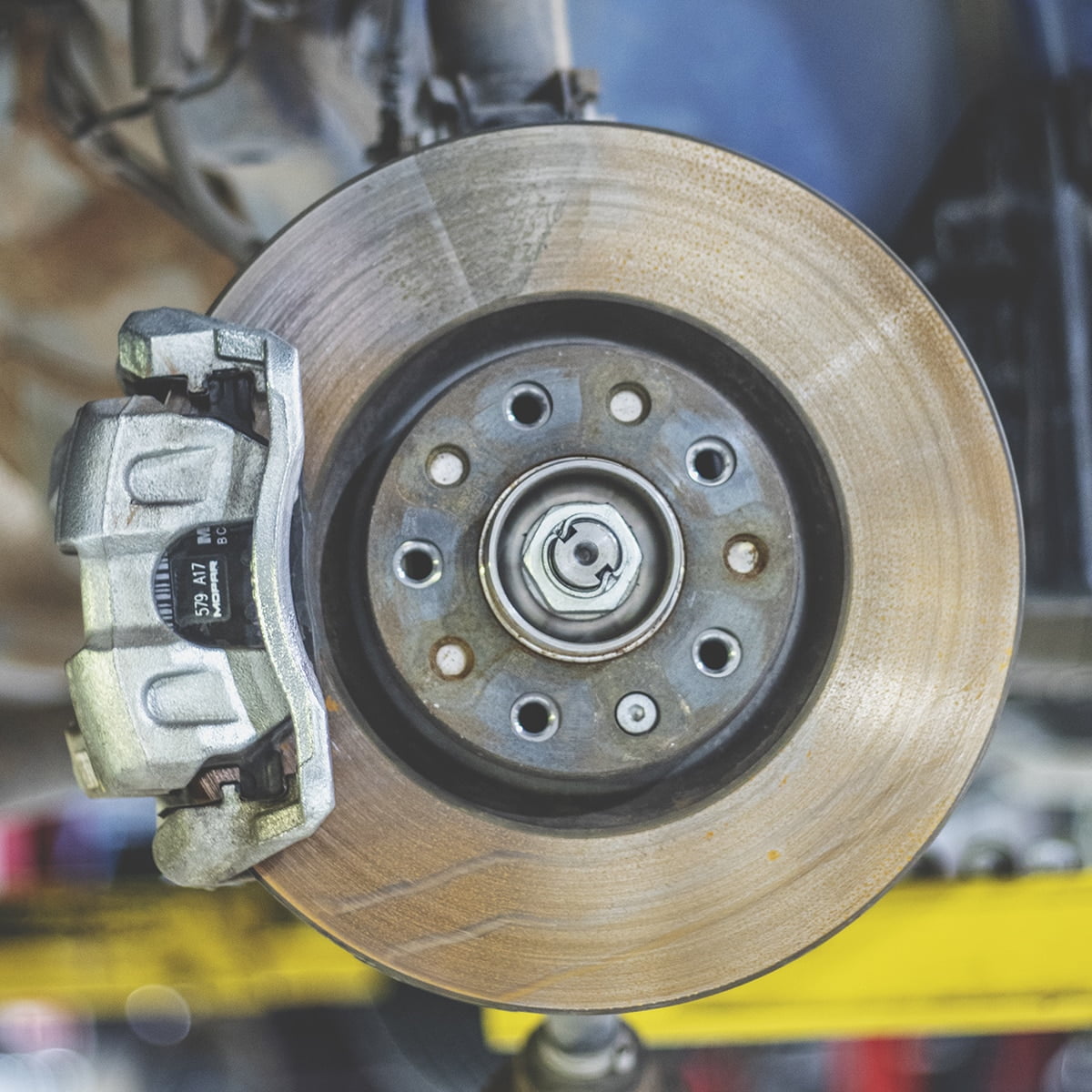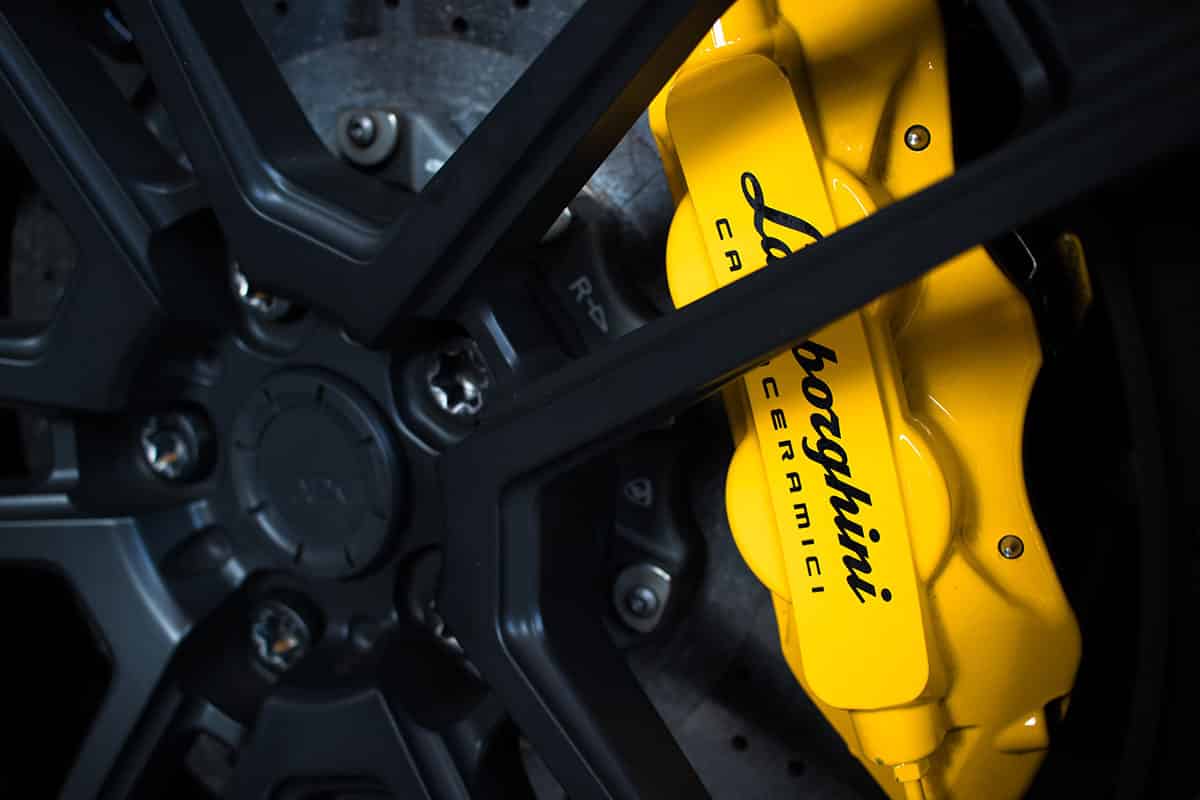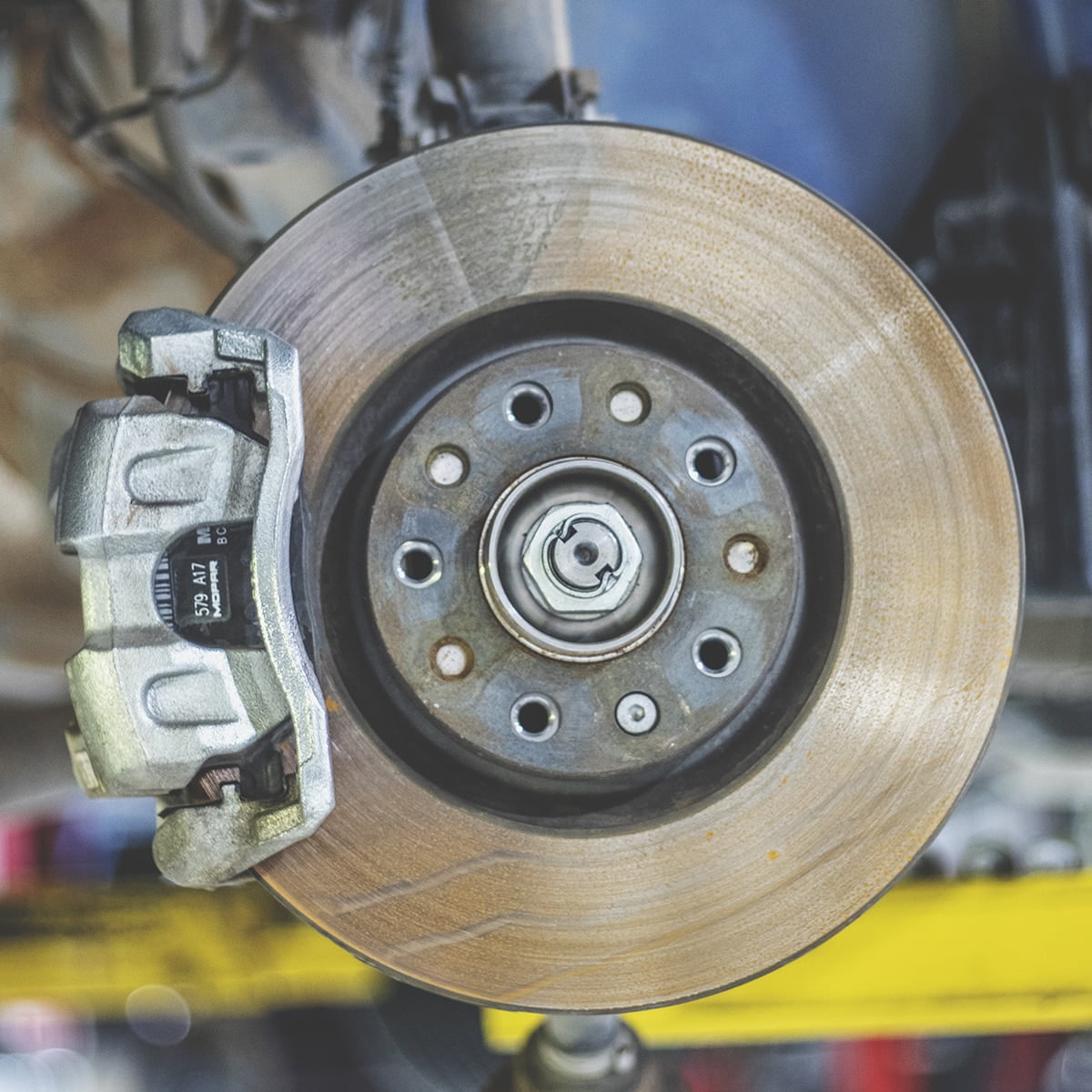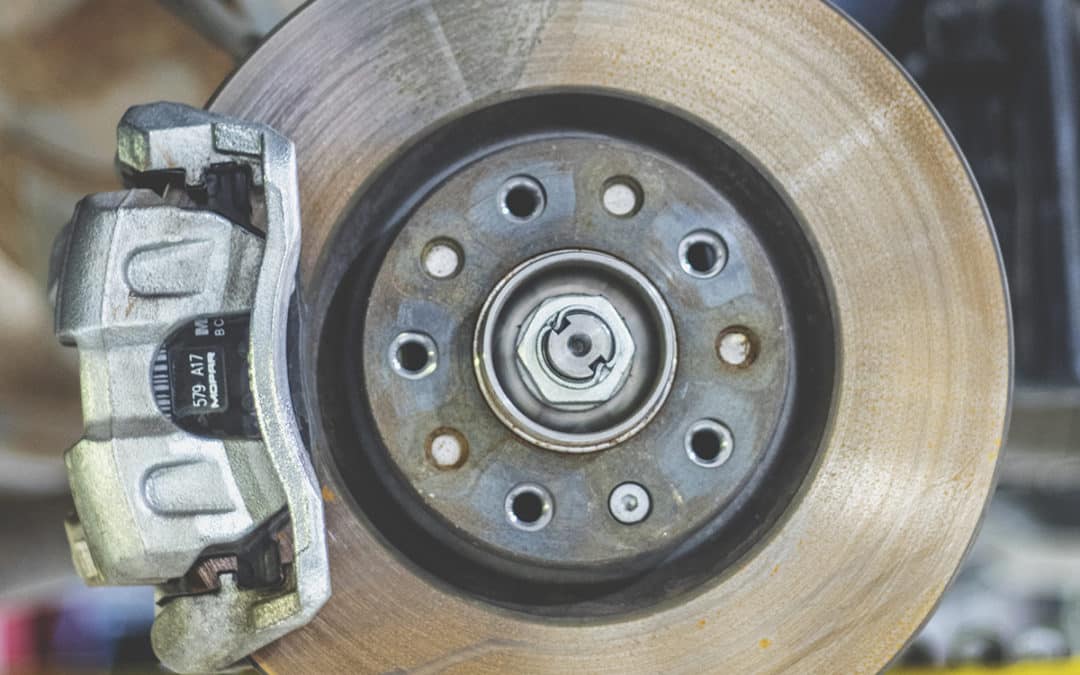
Brakes on vehicles can make all sorts of weird noises from squealing, squeaking, screeching, hissing, scratching, swooshing and grinding.
Sometimes it’s normal and sometimes it’s not.
Read more to find out whether you need to get those squeaking brakes checked or not.
How do brakes work?
It’s a good idea to have a basic understanding of how the brake system in a vehicle works.

Most modern vehicles have brake rotors, brake pads and brake calipers (older vehicles may have brake drums on the rear). These all sit behind each wheel of the car or truck.
The caliper holds the brake pads. When you press the brake pedal, this makes the caliper push the pads onto the rotor.
Upon brake pads making contact with the rotor, friction is caused and thus slows the wheel down.
Causes of squeaking brakes
- Worn brake pads (brake pad wear indicator triggered)
- Temperature difference
- Compound material of the brake pads
- Warped brake rotors
- Moisture
- Missing brake pad insulation shim
- Anti-rattle clips missing or not aligned
Worn Brake Pads
Brakes squeaking from worn brake pads is definitively the one you need to fix.
Brake pads can be fitted with a warning indicator which will result in a loud squealing noise when the pad is near the end of it’s life.
A visual wear indicator on the pad consists of a groove that runs across the pad. When the material on the pad is flush with the indicator, it’s time for new pads.

If you are not familiar with replacing the pads/rotors on your vehicle, take it to a local brake expert.
Some repair shops even offer free brake checks, or they are checked during routine maintenance like oil changes.
Look at your brake pad to see how much of the pad is left. You may need a flashlight, but should be able to see it without taking the wheel off.
If the brake pad is less than 1/4″ thick, they probably need replacing.
How long do brake pads last?
Typically between 25,000-50,000 miles. This all depends on the type of brake pad and how hard or how often the vehicle is driven. Lesser quality pads may also wear faster than normal.

Also know that a vehicle sitting for a lonf periods of time without being driven, can cause deterioration of the pads too.
Temperature Difference
Too cold
When the temperature gets below 32 F, snow and ice can build on brake pads and rotors. Even water that gets in there can later freeze causing and ice build up.
This can cause a squealing or squeaking brake noise but should only be temporary as the ice and moisture melts/disspates.
Too hot
Excessive hard braking, dragging the brake or problems with the system causing the brake to stick on the rotor more than it should.
Overheating the pads results in them becoming hard and/or shiny which reduces the friction. If brakes are glazed, this will eventually cause a build of material on the rotor too, braking delays and a shudder.

If the brake pads are glazed, they need to be replaced. The compound of the pad is effectively ruined at this point.
Brake pad compound (material)
Some brake pads come with a wear-in material. When the pads are brand new, they may squeak a little until they are broken in.
Pads with a high metal content can cause squeaking or squealing when braking.
Race cars can often have brake set-ups that squeals due to the compound material the competition pads are made of. The desired effect of the pad and rotor combination is maximum braking under hard driving conditions. They work best when they are hot. It is normal for high-end brake set-ups to squeal.

Carbon ceramic brake set-ups are also known to be noisier.
Squeaking brakes is a small side effect to pay in return for the brakes being able to stop a car at high speeds.
High temperature grease can be applied to the back of the pad to reduce some noise in this instance.
Warped brake rotors
Rotors are round and supposed to be flat. Completely flat on the surface that the pad makes contact with. The term for a completely flat surface on brake rotors is called honest.
If the rotors are not honest, this results in vibrations due to pads getting bumped on the uneven surface. This can cause further damage and other parts or prices to become misaligned.
It’s likely a vibration from the brake pedal or steering wheel is felt before squeaking brakes in this instance.
Moisture
Water getting on the rotors and pads can cause squeaking brakes.
Snow, rain and/or condensation build up can make the brakes squeal when pressing the brake pedal.

Moisture can also cause the rotors to rust. Rust can also cause some noises from the brakes. The noise should go away after some driving. Applying the brakes should help clean the rust off the rotors.
Missing shims
hims are there to reduce noise by dampening vibrations between the pads and rotors.
If the shim is missing, misaligned or not making contact with the brake pad, it can’t do it’s job. This will increase the likelihood of brakes squeaking.
Anti-rattle clips missing or not aligned
Missing or misaligned anti-rattle clips can cause squeaking brakes. Anti-rattle clips are pieces of metal that hold the brake pad tight to avoid rattling.
Other hardware that’s missing, out of alignment or rusted can also be the culprit in squeaking brakes.
When to get squeaking brakes checked
Squeaking brakes can sometimes be normal, due to factors such as moisture, ice, rust, cheap brake pads, or performance brake pads compounds.
Being able to brake efficiently is a major part of vehicles safety. If your brakes are not working as good as they did, or it’s taking a lot longer to stop, have them checked.
If your brakes are spongy or not very responsive, have them checked.
When the squealing or squeaking noise is unbearable, definitely have your brakes looked at.

Less than a 1/4″ of pad thickness left? It’s time for new pads.
Finally, if you aren’t sure but are are still concerned, its better to be safer than sorry when it comes to brakes. As mentioned earlier, most reputable auto repair shops will check them for free.



Recent Comments